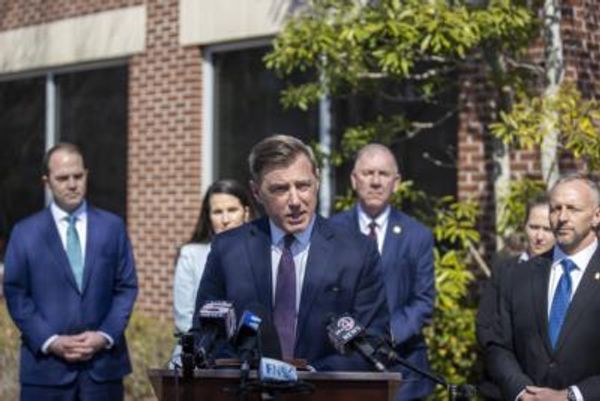
It could not come soon enough. After 14 years, Britain at last has a government motivated by re-energising a sluggish economy rather than channelling lucrative state contracts to wealthy friends. A government keen to close the gap between young people from different backgrounds rather than impoverishing children. And one that aims to restore the NHS to its world-leading status rather than neglecting it and leaving people unable to get the care they need. Standing on the steps of Downing Street on Friday, prime minister Keir Starmer delivered a message of hope, pledging to remind the country that politics can be a force for good, and government can change people’s lives for the better.
It was a decisive and deserved victory: the largest majority any government has secured since 1997, just shy of that achieved by Tony Blair. The Conservatives were reduced to a rump of just 121 seats, voters forcing out cabinet minister after cabinet minister, a fitting verdict on a truly dreadful governing record. In Scotland, SNP incumbents were similarly swept away, leaving Labour the largest party in terms of Westminster seats.
Starmer has promised change. “We will be judged on actions, not words,” he said at his first press conference as prime minister. That change is evident in his initial decisions. In appointing his cabinet, Starmer has almost without exception moved shadow cabinet ministers into their government briefs, a sign of his commitment to expertise and stability rather than big jobs as favours for allies. More than eight in 10 of his cabinet went to comprehensive schools, compared with the two-thirds or so educated at private schools in Conservative cabinets in recent years. It also contains the most female ministers in history, including the first ever female chancellor in Rachel Reeves. Britain now has an education secretary who was eligible for free school meals and a housing secretary who grew up in social housing. Starmer has also made some inspired appointments at minister of state level from outside the parliamentary party: James Timpson, the businessman who has long made prisoner rehabilitation part of his company’s mission, has been appointed prisons ministers; Sir Patrick Vallance, the respected former chief scientific adviser whose tenure covered the Covid pandemic, is now science minister. Labour is reportedly talking to Nick Boles, the former Conservative planning minister who resigned from the party, about leading a review of planning. It all speaks to what Starmer has been telling the country in the runup to the election: that he is not a tribal politician, but one who prioritises “getting stuff done”.
It is also instructive that Starmer had a meeting with Sir Laurie Magnus, the independent adviser on ministerial interests, in his first 24 hours as prime minister. At his press conference yesterday, he reiterated that he expects the highest standards of behaviour in office, a refreshing break from the lack of probity that has plagued Conservative ministers in recent years, over issues ranging from Partygate to bullying. It is already clear that Rishi Sunak’s Rwanda plan – an immoral, hugely expensive wheeze to try to convince voters that he could reduce the number of small boat crossings across the channel – will be junked.
Much has been made of Labour’s national vote share being less than the polls predicted. But it will have been somewhat artificially depressed, partly because of tactical voting, with voters in seats where the Lib Dems were second clearly using their votes to get rid of incumbent Conservatives, and partly because the predicted size of Labour’s majority would have made some people feel like they could safely express support for smaller parties without jeopardising the prospect of a Labour government with a healthy majority. The sheer size of Labour’s majority – a phenomenal feat given the party suffered one of its worst ever defeats less than five years ago under Jeremy Corbyn – is not only a vindication of Starmer’s electoral strategy to prioritise economic stability and to promise incremental rather than radical reform. It is also an overwhelming democratic mandate to govern differently from the Conservatives, an opportunity to change Britain for the better.
Labour has been elected on a platform to pursue five missions: to boost economic growth to the fastest in the G7, to transition the UK to clean energy by 2030, to transform the NHS, to halve serious and violent crime, and to remove barriers to opportunity for children and young people. Starmer yesterday emphasised that he would personally chair the delivery boards responsible for each of them. They would be ambitious at the best of times. After more than a decade of Tory neglect of infrastructure and public services, worsened by the external shocks of a pandemic and an energy price spike, they will be very difficult to deliver. The initial steps outlined during the election campaign are good stepping stones, but by themselves will not come close to delivering on the missions.
Labour must make the most of its huge mandate and transform its electoral strategy into a governing strategy. Alongside economic stability, it needs to go beyond its manifesto commitments to lay the foundations that can address Britain’s productivity crisis. Yes, private investment has an important role to play, but it will need to be leveraged in using higher levels of public investment than currently planned. Planning reform will help deliver more houses, but more than that is needed. Labour should commit to a programme of public investment in affordable housing for rent for young people and young families. This will not only boost jobs and growth but will help tackle the housing crisis.
As we have argued time and again, rising levels of child poverty are a stain on the nation’s conscience. Lifting the two-child benefit cap would cost around £3.4bn a year in the long term – a mere rounding error on the £1,200bn a year the government spends. Britain can afford to do this, through additional borrowing if necessary, with the long-term costs of rising child poverty probably far outweighing the interest. Finally, Labour will never make the NHS fit for the future without ensuring all older people can access the personal care they need to live dignified lives. Far too much NHS resource now goes on meeting the costs of failing to provide adult social care. A majority of over 170 means Labour has no excuse for not confronting head-on the challenge of reforming social care that politicians have avoided for decades.
It will be tough; the sheer scale of ambition of this government guarantees that. Starmer is right to invite voters to hold him accountable for his deeds not words. But for the first time in well over a decade, Britain has a government that cares about making everyone’s lives better. This alone is reason enough to feel the “sunlight of hope” he spoke of as the country awoke to a new political dawn.







